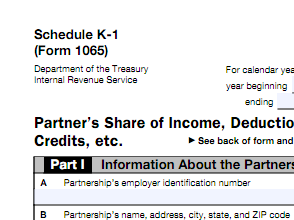DiSabatino CPA Blog
Understanding Tax Terms: Flow Through Entities
Small business owners have a number of options on how to organize their business for tax purposes. Many small, single owner, businesses are not incorporated, and are deemed "sole proprietors", in the eyes of the IRS. Other business entities, like C-Corporations, are taxed as a separate entity with distributions to owners taxed a second time as dividends. Still others are deemed "flow-through" entities like S-Corporations and Limited Liability Companies (LLC).
Flow-through entity
Flow-through entities do not pay taxes at the company level. With a flow-through entity the business files a tax return, but does not pay tax as part of the tax filing. Instead, the business tax return reports the net income to the IRS, but then distributes the taxable income to their respective owners via a K-1 tax form. Each individual owner then reports their share of the net income on their individual tax return and pays the tax on this and any other personal income.
Generally, business owners like flow-through entities because:
- The business income is taxed once instead of twice as in the case of C-Corporation entities.
- The business format provides owners a level of legal protection that is not available by doing business as a sole proprietor.
What you should know
- Individual tax rates. Increases in individual tax rates have an impact on the amount of tax paid by all small businesses that are organized as flow-through entities.
- Can you pay the tax? Small "flow-through" businesses must pay income tax on all their business profits. However the business entity is NOT required to distribute cash from the company to help pay the tax. So "flow-through" owners could see a tax bill without money to pay the tax.
- Seasonality challenge. Seasonal "flow-through" businesses with high sales volumes in the summer often have a hardship to pay their taxes. This is because cash for these businesses is typically used to build inventory at the same time taxes are due.
- Minority shareholder caution. Minority Shareholders in "flow-through" entities are doubly cursed. They not only may not receive distributions to pay taxes due, but they are often precluded from selling their shares, and they do not have enough ownership to require distribution of funds through shareholder voting.
- The marriage penalty. Taxes on your business income can be higher for a married couple versus a single business owner. This is due to the pre-built tax rate penalty for married couples in the current tax code.
- Very popular business entity type. According to the IRS the S-Corporation formation is a popular business entity type with 4.2 million S-Corporations in 2011 while LLC's are quickly becoming the new entity of choice with growth from 250,000 entities to over 1 million entities today.
Please give us a call to discuss this or any of our other topics with you, so we can address your specific requirements.
DiSabatino CPA
Michael DiSabatino
651 Via Alondra Suite 715
Camarillo, CA 93012
Phone: 805-389-7300
ww.sharpcpa.com
This publication provides summary information regarding the subject matter at time of publishing. Please call with any questions on how this information may impact your situation. This material may not be published, rewritten or redistributed without permission, except as noted here. All rights reserved.
When you subscribe to the blog, we will send you an e-mail when there are new updates on the site so you wouldn't miss them.

